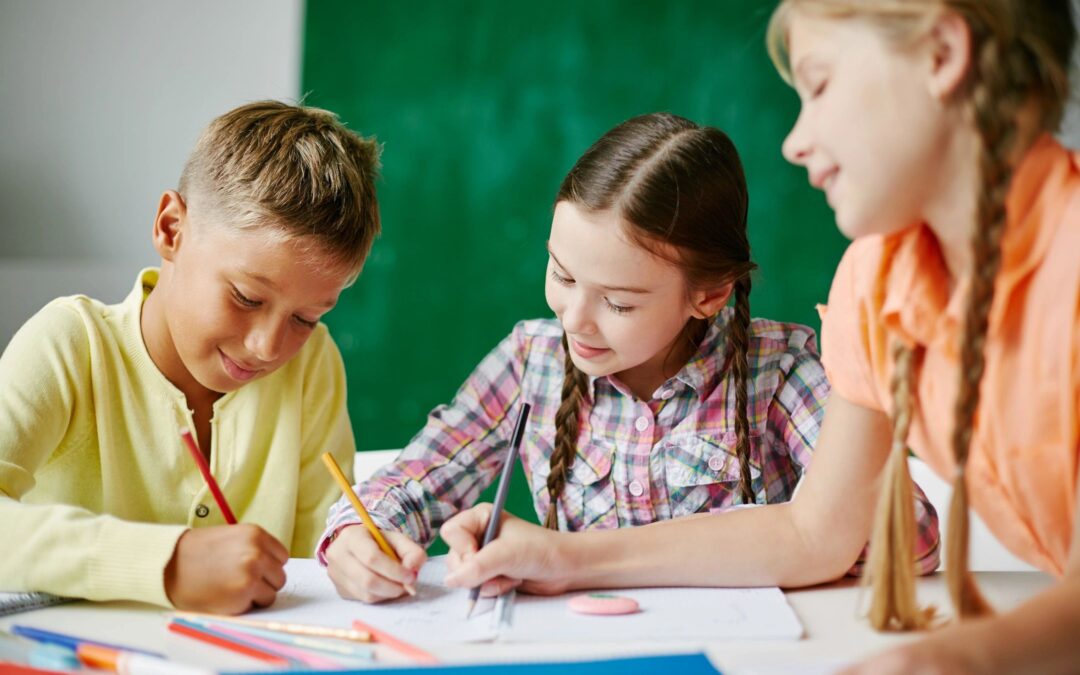Children with learning disabilities can often be left out from activities that are possible by able-bodied children. It’s important for their psychological, social, emotional and physical well-being that they participate in some sort of activity with other children and role models/directors who have tailored those activities to their needs. The feeling of accomplishment when these activities are done well, and the life-long lessons that can come with them need to be experienced by all children. Below are a list of activities that children with learning disabilities can do, both in the summer, and throughout the year.
Volunteer work
Nothing helps improve kids’ self-esteem like volunteering. Volunteering is a great way to give back in the community and help with kids self-confidence. They also are able to get experience doing new things or improving some of their skill sets, like leadership. The other benefit of volunteering is that volunteer hours are great for college applications or service societies. They also provide lifelong connections that can’t be formed anywhere else.
If your child has a learning disability, this does not stop them from volunteering or being an effective helper. They simply need to find an activity that they can handle and that will provide them with a positive experience. It may take a little more time to find a volunteer space that is perfect for your child. You may even have to volunteer with your child to assist them for the first few sessions. However, once they find the right opportunity, it will be an invaluable experience. Some opportunities include working at the hospital, nursing homes, summer camps, senior citizens, or community events.
Lessons and camps
There are so many skills that your child can learn that lessons and camps may be the best summer or year-round opportunity for them. Camps can be general summer camps where they have hands-on activities, field trips, and other recreational activities. Or, camps can be more specific and geared towards gaining a specific skill like lego camp or a musical camp.
Year-round activities can include other lessons that your child can learn, including learning a musical instrument or learning how to play a sport. There is no reason that your child cannot learn these activities, but if their schools do not have the services to accommodate them in sports and music, then it may be a better option to choose a private space where the instructor has experience teaching children with learning disabilities. There are so many ways to cultivate your child’s skills, that all you have to do is find one and enroll them and watch them blossom in whatever they’re doing.
Theater
Theater has many social and emotional benefits for children with learning disabilities. By reading scripts, this may help children with their reading fluency including vocabulary, reading accuracy and intonation. Additionally, character development can help children improve in their understanding of the material and critical analysis of what’s going on. Both of these skills are very important for reading comprehension, so you may be getting two benefits in one activity.
There are after school theater programs and theater camps that may be excellent options for students. Even perspective taking while pretending to be another character could show some benefits with children that struggle with emotional and social awareness. Being on stage could also improve your child’s self-esteem and self-confidence as they get used to speaking in front of people. There are so many cultural and psychological benefits to theater that you and your child may both really get into, especially if you’re able to join them.
Visual arts
Art is a great outlet for students with learning disabilities to communicate their thoughts and feelings in a way that is therapeutic and creative. Visual art can take the shape of photography, coloring, painting, sculpting, etc. The fact that there are so many options makes it a great tool for children. There is even an organization called Eye to Eye for students with learning disabilities that offers an arts curriculum and mentorship program. There are local chapters where artist-mentors who have learning disabilities are paired with children with those similar learning differences and collaborate on art projects. This is a great program your child can be a part of and then come back to to volunteer as we discussed earlier.
Coding
Coding and computer programming classes are starting to appear more and more in the classroom. The benefits of coding include higher-order thinking, organization and spelling. Coding clubs are a great way for children with social difficulties to meet other children who also have social difficulties. For example, those with high function autism spectrum disorder may thrive in coding environments because it’s all numbers and letters which may better align with their learning styles. Also, coding experience can take students a long way in terms of future career options. Coding is in high demand, and that demand is only going to grow. If your child has those experiences early, then that may override any barrier due to their learning disability.
Skill enhancing
Summer time may be the best time to enhance some skills that your child may be a bit deficient in at the end of the year. Tutoring during the year to help improve reading, math, writing, or study skills may be great adjunct to fill some gaps. Even if your child is not behind, skill enhancing summer and afterschool activities may be the best way to help them get ahead. You can talk with your school about different options they have or even look at various summer programs for children with learning disabilities.
If you need additional support, you can reach out to Diverse Health Services to see what services we offer for students with learning disabilities.
Resources:
- https://ldaamerica.org/info/summer-activities-for-children-with-learning-disabilities/
- https://www.noodle.com/articles/5-extracurriculars-that-are-great-for-kids-with-learning-disabilities


Recent Comments